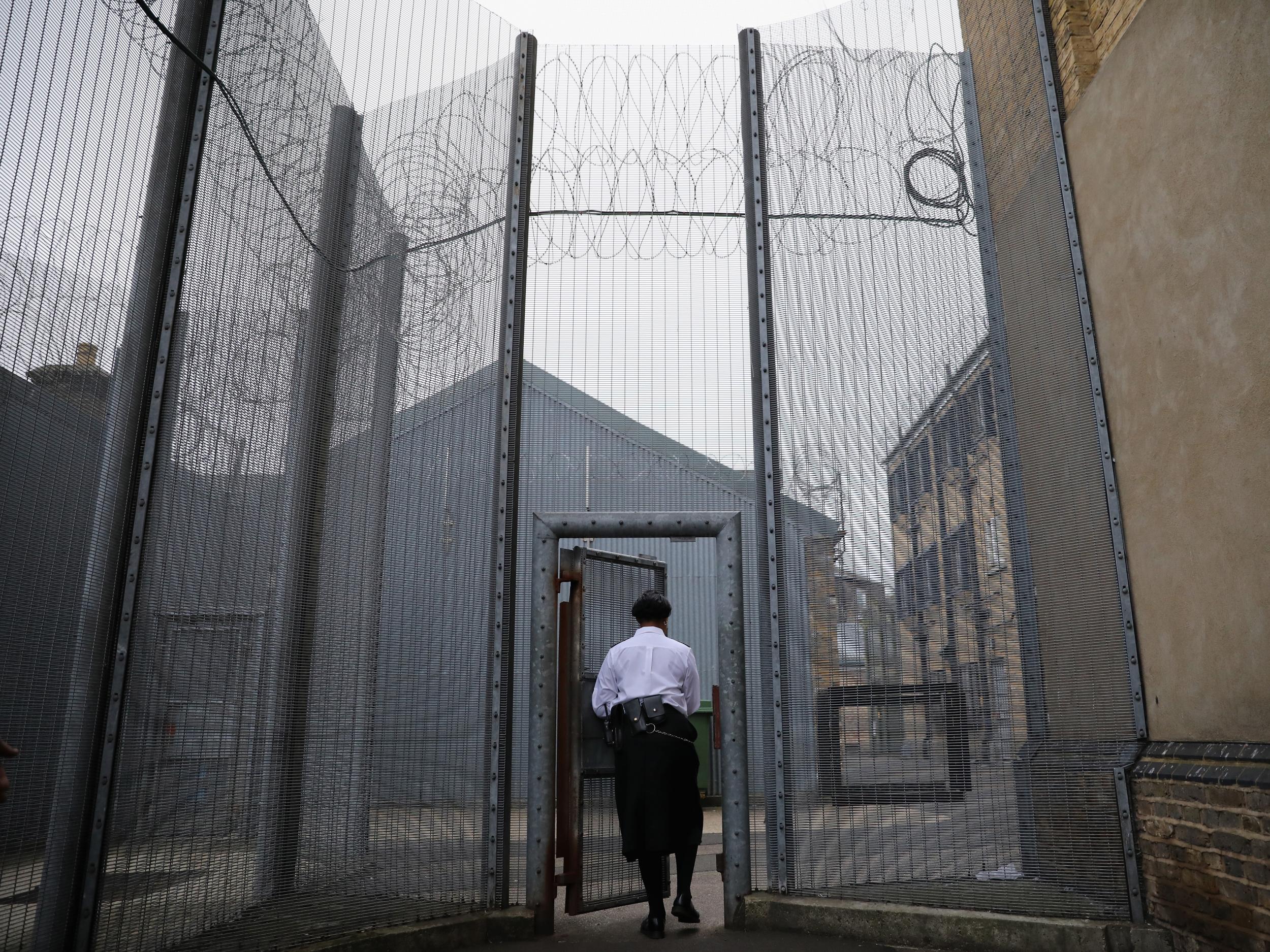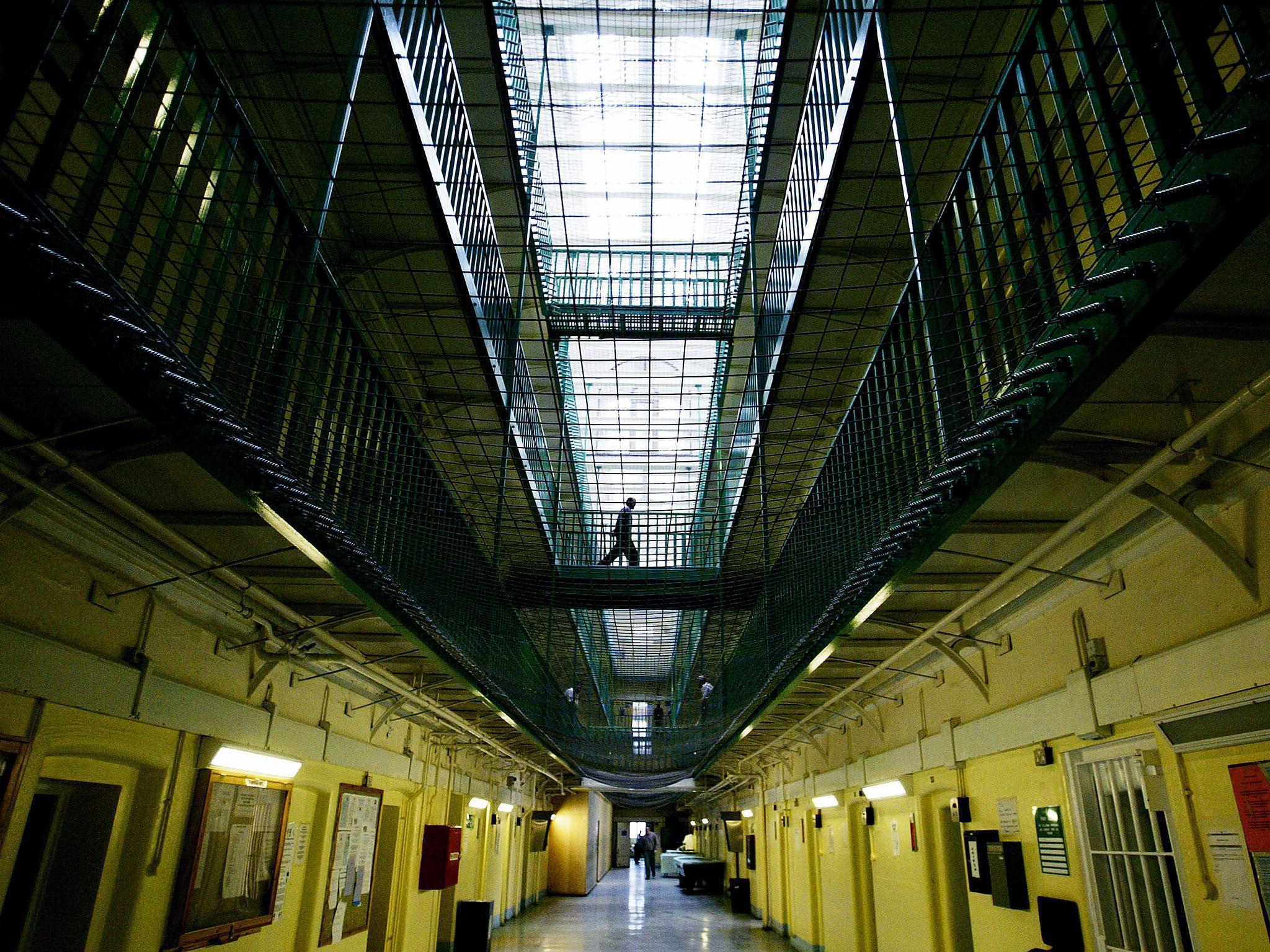Prison suicides hit all-time high: 2016 is deadliest year as one inmate takes own life every three days
More than 100 prisoners have taken their own lives since the start of the year, the highest since current recording practices began in 1978

More prisoners than ever before are taking their own lives, with 2016 already the worst year ever recorded for suicides in prison, according to new figures released today.
More than 100 people have killed themselves behind bars – one every three days – since the beginning of the year, said the Howard League for Penal Reform.
And this figure is set to worsen as the Christmas period approaches, the charity’s CEO Frances Crook told The Independent.
“Christmas is a desperately sad time and with very few staff on duty for basically two weeks, people are going to be locked up almost all the time. It’s very grim,” said Ms Crook.
There is usually a spike in prisoner suicides at this time of year, she added. “This is the worst I’ve seen it, and I’ve been doing this for 30 years.”
“The ones where you get the highest death rate and levels of violence are the overcrowded prisons; but nowadays practically all the prisons are overcrowded,” she said, saying the suicide crisis is one of "epic proportions".
The Howard League said it had been notified of 102 people dying by suicide in prison this year, the highest in a calendar year since current recording practices began in 1978.
The previous high was in 2004, when 96 deaths by suicide were recorded.
The figures, published in a joint report by the Howard League and the Centre for Mental Health, add to concerns over the safety of the UK’s prison system, which Ms Crook has described as a “bloodbath”.
The report said the rise in prison suicides has coincided with cuts to prison staffing and budgets, along with an increase in the number of people in prison, resulting in overcrowding.
There has been a rise in violence while prisoners are spending hours locked in their cells each day – a practice which increases the risk of suicide, the paper added.
“Too many prisoners are spending time locked in their cells with limited access to work, education, recreation and physical exercise,” said the report, which urged authorities to build prison regimes “around a normal life” as far as possible.
It said that in local prisons, a third of prisoners were locked up during the day, while 38 per cent of young adult prisoners were locked in their cells for over 22 hours a day.
Ministry of Justice statistics published in October showed the number of fatalities in prisons across England and Wales was at a record high, with campaigners at the time describing a “toxic mix of violence, death and human misery” in the country’s jails.
Ms Crook said she would pressure Justice Secretary Liz Truss to keep government promises to recruit more prison staff.
“The government’s been promising more staff for the last three years. The previous prisons minister made repeated promises to parliament that he was going to recruit 1,700 more staff,” she said. “It hasn’t happened; promising it doesn’t make it happen.”
“I dread to think what will happen if something’s not done quickly. Promising extra staff at some time in the future: [the government has] done this before, it’s not going to solve the problem.”
The report called for the “incentives and privileges” scheme in prisons to be scrapped, saying it was having a “detrimental impact” on inmates' well being.
Under the regime, some prisoners have limits placed on family contact, physical activity and access to money and possessions, it said.
Incidents of self-harm and apparent suicides have surged against a backdrop of grave warnings about safety in prisons, and a number of self-inflicted deaths in recent years have been linked to new psychoactive drugs, previously referred to as 'legal highs'.
“This report is tragic proof of what prison officers have been saying all along – that the Conservative Government is failing every test when it comes to prisons, said Shadow Justice Secretary Richard Burgon.
“There is a real cost to Tory cuts to our prisons and a real cost to Tory incompetence on managing the prison service.
“That's a human cost, felt by prison staff, prison inmates and by society as a whole. Liz Truss needs to take this report seriously and sort this out now.“
The prison population, which currently stands at about 85,000, has come under scrutiny in recent days as former justice secretary Michael Gove warned that too many people are being sent to prison.
The Lord Chief Justice also suggested more criminals could be punished without being jailed and called for “tough community penalties” in the place of prison sentences.
Earlier this month, thousands of officers stopped work in protest amid soaring levels of violence and self-harm in prisons – forcing ministers to seek an emergency injunction to order them back to work.
It came after a string of high-profile incidents including the escape of two prisoners from HMP Pentonville in north London, who were later recaptured.

Justice Secretary Liz Truss has unveiled a wide-ranging blueprint for prison reform, including an additional 2,500 officers and measures to stop drones dropping drugs into jails and to block the illegal use of mobile phones.
A Government spokeswoman said: “Mental health in custody is taken extremely seriously and there are a range of measures already in place to help support prisoners.
“Providing the right intervention and treatment is vital to improving the outcomes for people who are suffering and all prisons have established procedures in place to identify, manage and support people with mental health issues.
“But we recognise that more can be done. That is why have invested in specialist mental health training for prison officers, allocated more funding for prison safety and have launched a suicide and self-harm reduction project to address the increase in self-inflicted deaths and self-harm in our prisons.”
